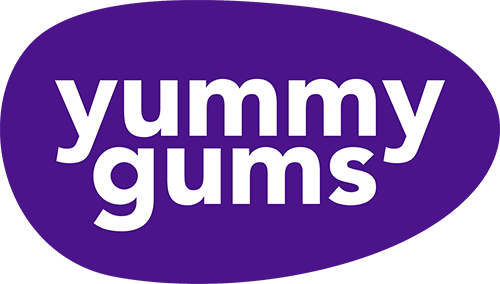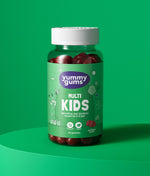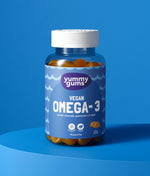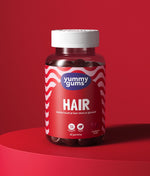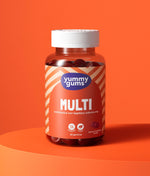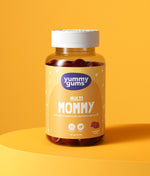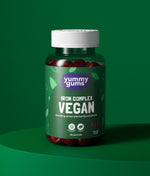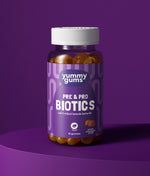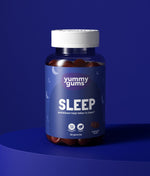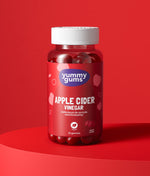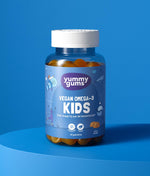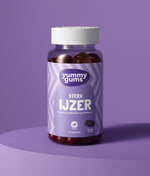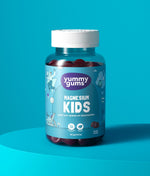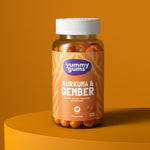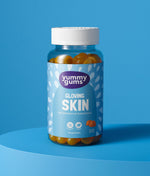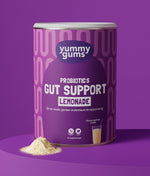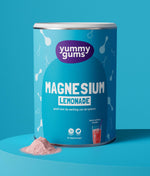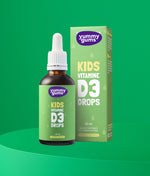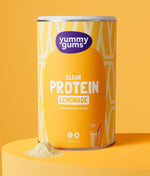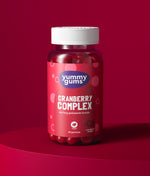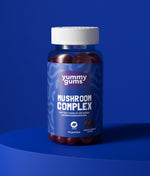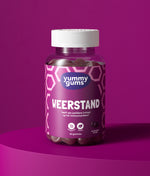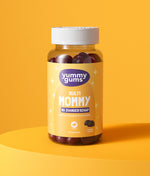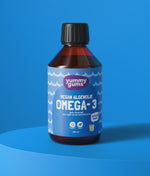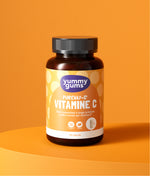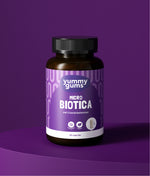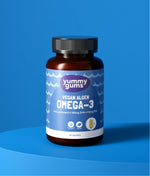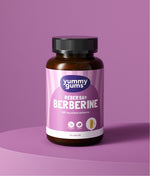What is (vegan) protein and what do you use it for?
Voedingsstoffen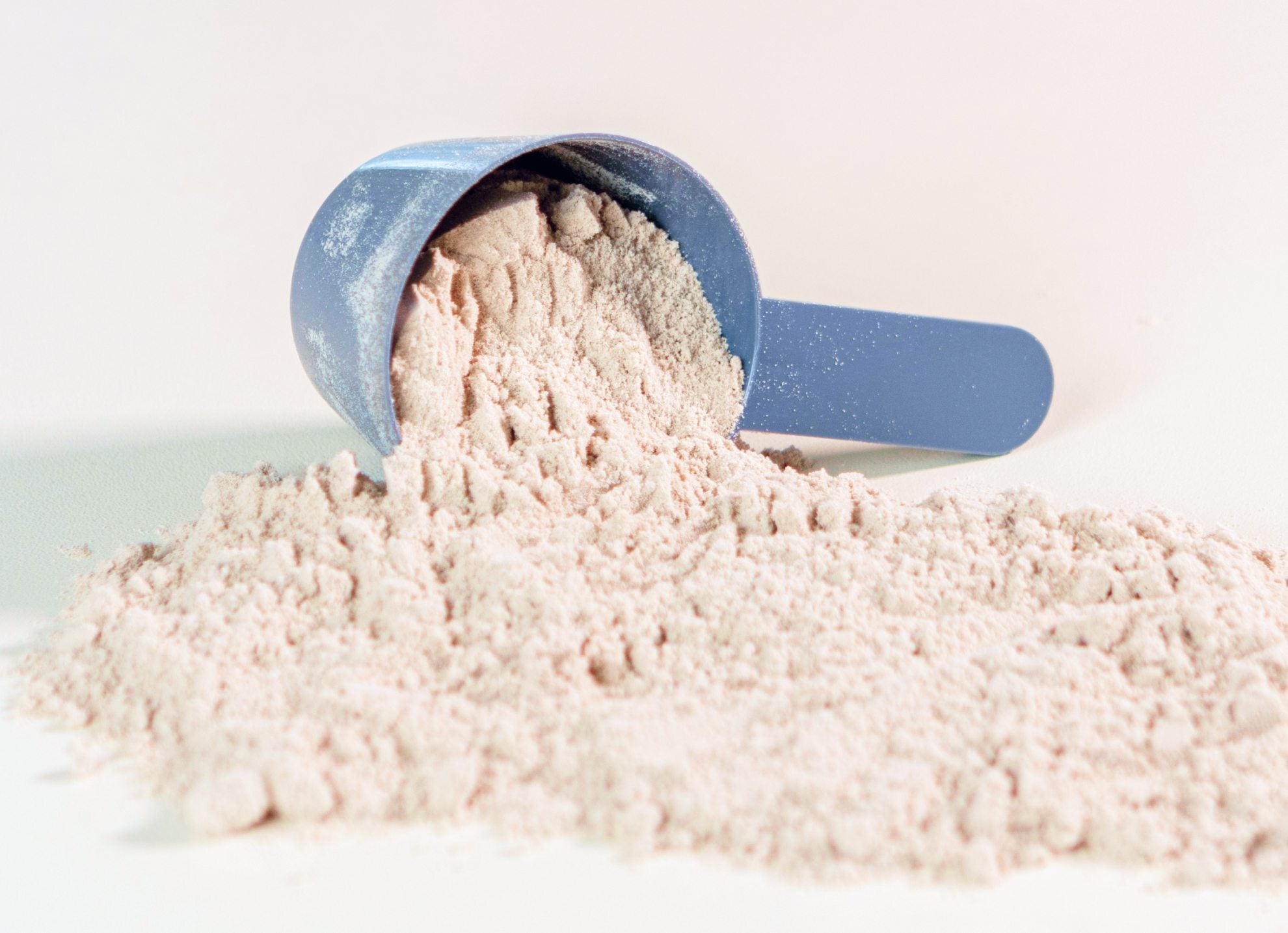
"Extra protein" or "10g protein" are terms you'll find on many packages. Protein supports bones and promotes muscle growth, among other things. That's why it's an important nutrient that every body needs. But how closely are you monitoring your protein intake?
What is protein?
Protein, also known as egg white, is a nutrient that provides us with energy through amino acids and calories. Amino acids are the building blocks of proteins in our cells. The body uses protein as fuel. Moreover, it's found in large quantities throughout the body. Because of these characteristics, it is a macronutrient, just like carbohydrates and fats.
The function of protein
Our bodies are made up of millions of cells that ensure everything works as it should. Each cell contains proteins, essential for proper functioning. Your body creates new proteins from amino acids and continuously replaces the proteins in existing cells to keep them healthy and strong.
Bones
Proteins contribute to the maintenance of strong bones and are good for the skeleton. They are necessary for normal growth and development of children's skeletal systems.
Muscles
Proteins also contribute to the maintenance of muscle mass. They support muscle strength and contribute to muscle recovery after physical exertion. Protein stimulates greater muscle growth and ensures stronger muscles and greater muscle strength.
Who is protein good for?
You consume protein daily through the food you eat. But sometimes this isn't enough, and you may have a protein deficiency. Below, we explain what to look for based on your age group, life stage, diet, or if you exercise intensively.
Kids
Children grow rapidly, so they need more grams of protein per kilogram of body weight than adults. Therefore, make sure you provide your child with plenty of protein-rich sources.
Athletes
Protein contributes to the growth and maintenance of muscle mass. This is especially important in sports that require strong muscles, such as strength training, sprinting, and cycling. Therefore, it's essential to get enough of this nutrient.
From 60 years old
As you get older, you move less and have less muscle mass. As a result, most people burn less energy and eat smaller amounts. Protein contributes to maintaining muscle mass. Therefore, it's important to consume sufficient protein-rich foods such as meat, fish, legumes, and dairy products.
Pregnancy and breastfeeding
During pregnancy, it's important to watch your protein intake. You need more protein from the first trimester onward. The Health Council (2021) states in its report on dietary reference intakes for protein: "Protein is needed for: Maintaining normal maternal body composition, fetal growth, and maternal growth."
They also state that you need extra protein during lactation. They state: "Protein is needed for: Maintaining normal body composition and breast milk production." Are you having trouble getting enough protein? Then you can choose to supplement your diet with a supplement.
Vegetarians and vegans
Plant-based proteins are less easily digested than animal-based proteins. Therefore, it's important for vegetarians, and especially vegans, to eat more of them. A vegan protein supplement can be a good addition to your dietary protein intake.
Support for a calorie deficit
Protein-containing foods don't directly help you lose weight. However, it's crucial to get enough protein when trying to lose weight. When you lose weight, you create a calorie deficit, meaning you eat fewer calories than your body needs. This causes your body to use fat for energy, leading to weight loss.
Eating enough protein helps maintain your muscle mass. This is important to prevent your body from breaking down muscle mass for energy.
|
General (18+) |
0.83 grams per kilogram of body weight |
|
Children |
Varies by age, see this link for more information. |
|
Endurance athletes |
1.5 - 2 grams per kilogram of body weight |
|
Vega(n) |
1.08 grams per kilogram of body weight |
|
Pregnant (1st trimester) |
1 gram extra per day (on top of daily intake) |
|
Pregnant (2nd trimester) |
9 grams extra per day ( on top of daily intake) |
|
Pregnant (3rd trimester) |
28 grams extra per day ( on top of daily intake) |
|
Breastfeeding months 1-6 |
19 grams extra per day ( on top of daily intake) |
|
Breastfeeding months 7-12 |
13 grams extra per day ( on top of daily intake) |
What is protein powder made of?
Many people think protein is only found in meat and dairy. Yet, there are plenty of vegan options available. There are various vegan protein powders made from peas, soy, hemp, and brown rice. There are also lesser-known protein powders made from seeds like pumpkin, sesame, walnuts, sunflower, and chia.
Animal protein powder can be made from various protein-rich products. A commonly used ingredient is whey, a byproduct of cheese production.
How do I take protein powder?
You can drink protein powder with water, (plant-based) milk, or add it to a smoothie. It can also be used in various baked goods, such as pancakes or banana bread. You can also mix it into yogurt, oatmeal, or cornflakes.
Note: Clear protein powder isn't ideal for everything. It's often consumed with cold water because it tastes like lemonade. You can, however, mix it into popsicles or mocktails.
Difference between vegan protein and animal-based protein
Proteins from food are broken down in your body into amino acids, the building blocks for new proteins. There are different types of amino acids: some your body can produce on its own, while others must come from your diet because your body cannot produce them. These are called essential amino acids.
Plant-based protein sources often contain fewer of these essential amino acids than animal proteins. Therefore, various vegan protein powders are often combined to achieve a more complete amino acid profile.
If you're vegan or vegan, you can easily incorporate a variety of protein sources into your diet, which is good for your protein intake. This also helps you get more vitamins from your food.
What is high in protein?
Almost all foods contain protein. Although vegetables often contain less protein, some products are also rich in protein.
High-protein animal products include meat, poultry, dairy, eggs, and fish. Some fish, such as tuna, can contain as much as 27 grams per 100 grams. Low-fat cheeses like cottage cheese also contain 12 grams per 100 grams.
Plant-based products high in protein include legumes, grains, tofu, tempeh, nuts, and seeds. Tofu contains 13 grams per 100 grams, and walnuts contain 17 grams per 100 grams. Hemp seeds also contain a lot, at 32 grams per 100 grams.
Can you eat too much protein?
A high protein intake doesn't have to be dangerous, as there's no established upper limit for protein. However, eating too much protein is also unnecessary. We recommend adhering to the recommendations of the Nutrition Centre and the Health Council. Ultimately, however, the amount of protein you eat per day is up to you.
What happens when there is a protein deficiency?
The following is stated in the Nutrition Centre's encyclopedia on proteins (nd):
In the short term, a protein deficiency can lead to the breakdown of muscle tissue. This occurs especially when the body receives less energy than it needs. In the long term, a protein deficiency leads to a lack of muscle strength and reduced resistance.
What should I pay attention to with protein?
It's important to consume a variety of protein sources and, consequently, amino acids throughout the day. Therefore, don't switch entirely to one type of protein. Maintain a high-protein diet with (plant-based) dairy, legumes, tofu, tempeh, meat, fish, nuts, and seeds. Combine these sources to ensure you get enough protein.
Pay attention to labels: you can find out how much protein a product contains there. If it's added separately, you'll see this in the ingredients list.
You can also see what kind of protein the product contains. For example, whey protein is made from cow's milk. If you're allergic to it or are vegan, you don't want to consume that type of protein.
Yummygums Clear Protein Lemonade
Curious about what protein can do for you? Yummygums Clear Protein Lemonade is the newest addition to our Lemonade line. It's a powdered protein supplement that dissolves into a clear, slightly sweet lemonade. Yummygums Clear Protein Lemonade contains hydrolyzed pea protein isolate, making it easily digestible.
This product is completely plant-based thanks to the use of pea protein and contains only 55 kcal per serving. Mix with water and enjoy the refreshing tropical flavor.
Sources:
Nutrition Center. (n.d.) Proteins . Retrieved June 26, 2024.
